Dutch grapple with jihadist threat
- Published
The BBC's Anna Holligan reports on the Dutch jihadis fighting in the Middle East
Across Europe, governments are trying to prevent the radicalisation of young people attracted by the growing influence of Islamic State militants. More than 100 Dutch citizens are thought to be fighting for various groups in Syria and Iraq, and hundreds more have been identified as potential jihadists.
Dutch counter-terrorism officials are talking of a "rebirth of jihadism in the Netherlands".
In the Schilderswijk district of The Hague last month, a group of some 20 men were captured on video waving the black flag of jihadist groups and voicing support for the militant group Islamic State (IS) that has seized broad swathes of northern Syria and Iraq.
In the footage posted on the internet, the demonstrators can be heard chanting slogans such as "Down with America" and "Death to the Jews".
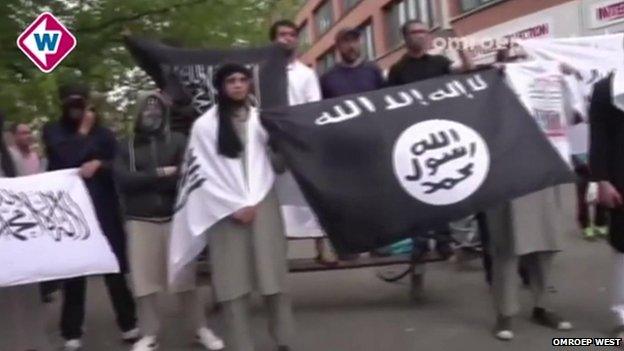
Footage of radical young Muslims in Schilderswijk caused outrage in the Netherlands
Turkish kebab shops and Moroccan coffee houses dominate the main street in Schilderswijk. Satellite dishes are scattered across the red-brick housing blocks of the predominantly Muslim district.
Outside a shopping centre a short distance from where the pro-IS demonstration took place, I meet youth worker Mustapha Iaairi.
Many young Muslims are struggling to find work and acceptance in the Netherlands, he tells me. The promise of a glorified existence extolled by radical preachers resonates with the vulnerable and disaffected.
While there is little appetite for the bloodthirsty approach espoused by Islamic State militants, the idea of going to defend fellow Muslims appears to be compelling for some young people who lack hope at home but see potential abroad.
"They show people's heads being cut off [in videos]," he says. "And maybe there is one person who thinks he doesn't have any future and thinks 'I'll go with that because it's Islam, because one person says this is the caliphate and we must go.'"
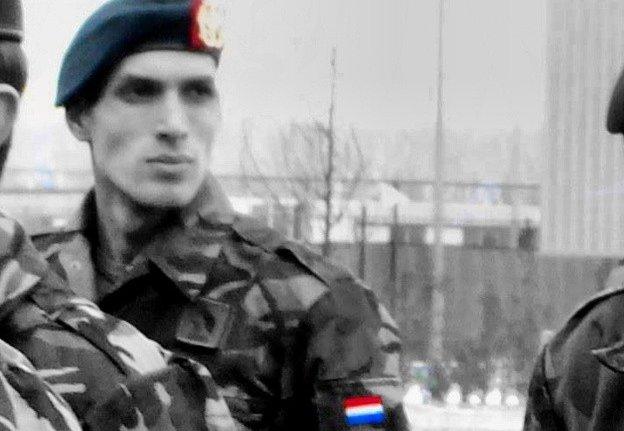
Yilmaz, once a Dutch soldier, became disillusioned with Western reluctance to intervene in Syria
The idea of an Islamic state achieved by peaceful means appears to resonate with people in Schilderswijk. "We all want that eventually because it is fair and people look after each other, not like it is now," he adds.
According to the Dutch intelligence service, hundreds of Dutch nationals are considering missions abroad, and thousands more are sympathetic to the cause.
They believe some 130 have travelled to Syria since late 2012 and 14 of them have been killed.
One of the foreign fighters already engaged in the conflict in Syria is Yilmaz, who trained with the Dutch armed forces and is now using military skills to teach new recruits to fight like a professional soldier.
He was among a group who initially travelled to the Middle East out of frustration with Western governments' reluctance to intervene in Syria. With an active presence on various social media platforms, it was relatively easy to get in touch with him directly.
Typing on a private instant messenger app, Yilmaz told me he was in Idlib, in northern Syria.
After a flurry of texts attempting to justify his desire to fight jihad, he also said he was fighting to form an Islamic state. "Which foreign fighter here does not want Islamic law?"
The Dutch security services say the threat, currently seen as "substantial', is mutating and becoming harder to track. Islamic State supporters are using multimedia propaganda tools to proliferate their message and attract ever younger recruits.
"We have girls aged 16 and 17 and even some of 14 who want to go to Syria or Iraq," says Rob Bertholee, the head of the Dutch General Intelligence and Security Agency (AIVD).
"The jihadis and would-be jihadis have become more professional in the way they operate.
"They make more and better use of the internet, social media, YouTube, of the movies."
His role is to protect the Netherlands from the threat posed by "returnees".
Thirty such men are currently being monitored by the Dutch intelligence agency and the security minister has said those who travel to Syria and Iraq could have their passports confiscated and face possible prosecution if they try to come back.
"It's a time bomb in our society," says the leader of anti-Islam Freedom Party Geert Wilders, who wants his supporters to stage a rival demo to "reclaim the streets" of The Hague. "All our countries face the same problem."
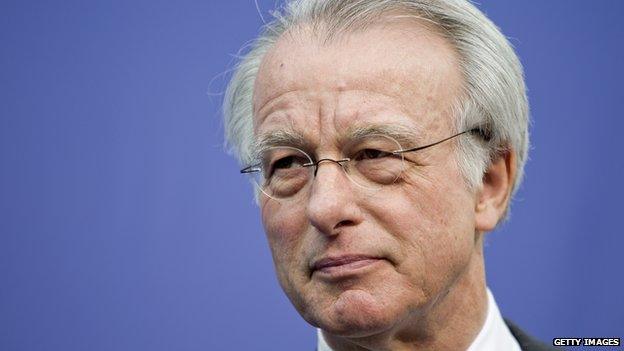
The mayor of The Hague, Jozias van Aartsen, has banned all protests for the next two months in Schilderswijk
Earlier this month a group of hundreds of nationalists paraded the Dutch flag through the streets of Schilderswijk. One eyewitness told me that Muslim men threw stones to try to protect young girls whose headscarves were ripped off.
Now the mayor of The Hague - this international city of peace and justice - is having a tough job trying to avoid further trouble.
Criticised for allowing the Islamist protest in July, Jozias van Aartsen is now also under attack for banning right-wing demonstrators from marching through Schilderswijk next month.
But it is even harder for the people of Schilderswijk. The majority who just want to better their lives are faced with extremists on both sides hijacking their street corners.
- Published21 August 2014
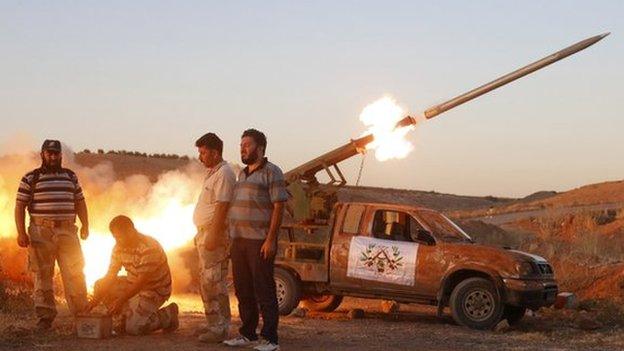
- Published26 April 2014
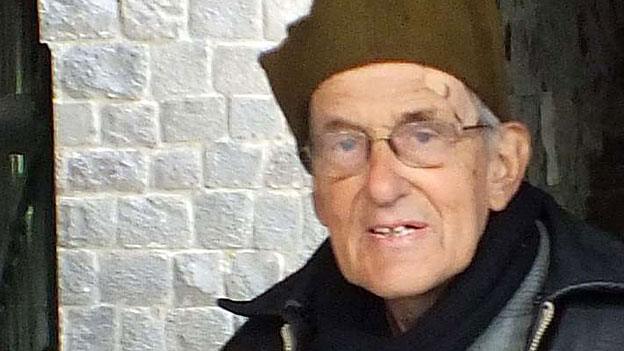
- Published2 August 2014
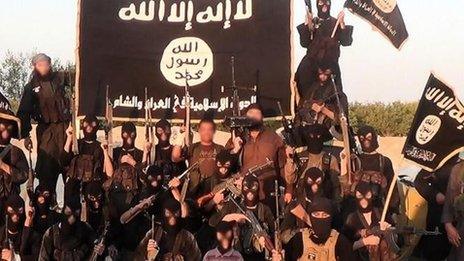
- Published11 April 2011